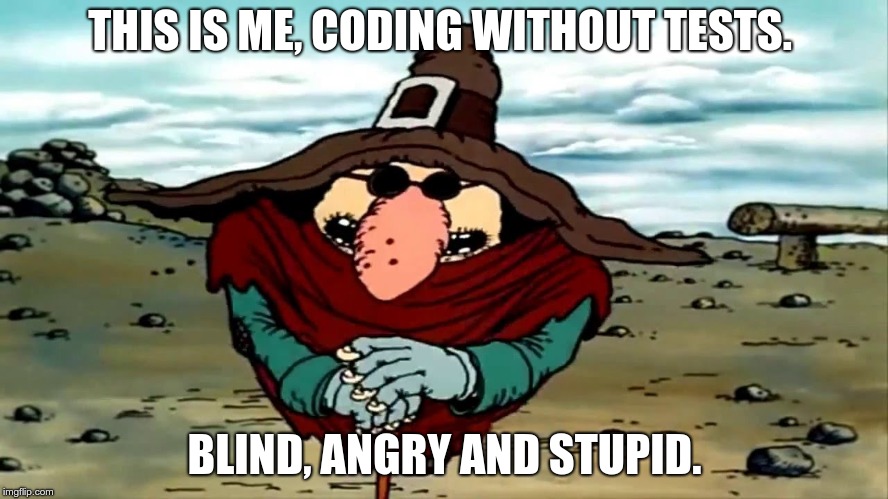
Learn from your fellow PHP developers with our PHP blogs, or help share the knowledge you've gained by writing your own.


<?php
namespace App;
use App\Comment;
use App\CommentVote;
use App\CommentSpam;
use App\User;
use Auth;
class CommentModel
{
}
?>
public function getAllComments($pageId)
{
$comments = Comment::where('page_id',$pageId)->get();
$commentsData = [];
foreach ($comments as $key) {
$user = User::find($key->users_id);
$name = $user->name;
$replies = $this->replies($key->id);
$photo = $user->first()->photo_url;
$reply = 0;
$vote = 0;
$voteStatus = 0;
$spam = 0;
if(Auth::user()){
$voteByUser = CommentVote::where('comment_id',$key->id)->where('user_id',Auth::user()->id)->first();
$spamComment = CommentSpam::where('comment_id',$key->id)->where('user_id',Auth::user()->id)->first();
if($voteByUser){
$vote = 1;
$voteStatus = $voteByUser->vote;
}
if($spamComment){
$spam = 1;
}
}
if(sizeof($replies) > 0){
$reply = 1;
}
if(!$spam){
array_push($commentsData,[
"name" => $name,
"photo_url" => (string)$photo,
"commentid" => $key->id,
"comment" => $key->comment,
"votes" => $key->votes,
"reply" => $reply,
"votedByUser" =>$vote,
"vote" =>$voteStatus,
"spam" => $spam,
"replies" => $replies,
"date" => $key->created_at->toDateTimeString()
]);
}
}
$collection = collect($commentsData);
return $collection->sortBy('votes');
}
protected function replies($commentId)
{
$comments = Comment::where('reply_id',$commentId)->get();
$replies = [];
foreach ($comments as $key) {
$user = User::find($key->users_id);
$name = $user->name;
$photo = $user->first()->photo_url;
$vote = 0;
$voteStatus = 0;
$spam = 0;
if(Auth::user()){
$voteByUser = CommentVote::where('comment_id',$key->id)->where('user_id',Auth::user()->id)->first();
$spamComment = CommentSpam::where('comment_id',$key->id)->where('user_id',Auth::user()->id)->first();
if($voteByUser){
$vote = 1;
$voteStatus = $voteByUser->vote;
}
if($spamComment){
$spam = 1;
}
}
if(!$spam){
array_push($replies,[
"name" => $name,
"photo_url" => $photo,
"commentid" => $key->id,
"comment" => $key->comment,
"votes" => $key->votes,
"votedByUser" => $vote,
"vote" => $voteStatus,
"spam" => $spam,
"date" => $key->created_at->toDateTimeString()
]);
}
}
$collection = collect($replies);
return $collection->sortBy('votes');
}
public function createComment($arary)
{
$comment = Comment::create($array);
if($comment)
return [ "status" => "true","commentId" => $comment->id ];
else
return [ "status" => "false" ];
}
<?php
namespace App;
use App\Comment;
use App\CommentSpam;
use App\CommentVote;
use App\User;
use Auth;
class CommentModel
{
public function getAllComments($pageId)
{
$comments = Comment::where('page_id', $pageId)->get();
$commentsData = [];
foreach ($comments as $key) {
$user = User::find($key->users_id);
$name = $user->name;
$replies = $this->replies($key->id);
$photo = $user->first()->photo_url;
$reply = 0;
$vote = 0;
$voteStatus = 0;
$spam = 0;
if (Auth::user()) {
$voteByUser = CommentVote::where('comment_id', $key->id)->where('user_id', Auth::user()->id)->first();
$spamComment = CommentSpam::where('comment_id', $key->id)->where('user_id', Auth::user()->id)->first();
if ($voteByUser) {
$vote = 1;
$voteStatus = $voteByUser->vote;
}
if ($spamComment) {
$spam = 1;
}
}
if (sizeof($replies) > 0) {
$reply = 1;
}
if (!$spam) {
array_push($commentsData, [
"name" => $name,
"photo_url" => (string) $photo,
"commentid" => $key->id,
"comment" => $key->comment,
"votes" => $key->votes,
"reply" => $reply,
"votedByUser" => $vote,
"vote" => $voteStatus,
"spam" => $spam,
"replies" => $replies,
"date" => $key->created_at->toDateTimeString(),
]);
}
}
$collection = collect($commentsData);
return $collection->sortBy('votes');
}
protected function replies($commentId)
{
$comments = Comment::where('reply_id', $commentId)->get();
$replies = [];
foreach ($comments as $key) {
$user = User::find($key->users_id);
$name = $user->name;
$photo = $user->first()->photo_url;
$vote = 0;
$voteStatus = 0;
$spam = 0;
if (Auth::user()) {
$voteByUser = CommentVote::where('comment_id', $key->id)->where('user_id', Auth::user()->id)->first();
$spamComment = CommentSpam::where('comment_id', $key->id)->where('user_id', Auth::user()->id)->first();
if ($voteByUser) {
$vote = 1;
$voteStatus = $voteByUser->vote;
}
if ($spamComment) {
$spam = 1;
}
}
if (!$spam) {
array_push($replies, [
"name" => $name,
"photo_url" => $photo,
"commentid" => $key->id,
"comment" => $key->comment,
"votes" => $key->votes,
"votedByUser" => $vote,
"vote" => $voteStatus,
"spam" => $spam,
"date" => $key->created_at->toDateTimeString(),
]);
}
}
$collection = collect($replies);
return $collection->sortBy('votes');
}
public function createComment($arary)
{
$comment = Comment::create($array);
if ($comment) {
return ["status" => "true", "commentId" => $comment->id];
} else {
return ["status" => "false"];
}
}
public function voteComment($commentId, $array)
{
$comments = Comment::find($commentId);
$data = [
"comment_id" => $commentId,
'vote' => $array->vote,
'user_id' => $array->users_id,
];
if ($array->vote == "up") {
$comment = $comments->first();
$vote = $comment->votes;
$vote++;
$comments->votes = $vote;
$comments->save();
}
if ($array->vote == "down") {
$comment = $comments->first();
$vote = $comment->votes;
$vote--;
$comments->votes = $vote;
$comments->save();
}
if (CommentVote::create($data)) {
return true;
}
}
public function spamComment($commentId, $array)
{
$comments = Comment::find($commentId);
$comment = $comments->first();
$spam = $comment->spam;
$spam++;
$comments->spam = $spam;
$comments->save();
$data = [
"comment_id" => $commentId,
'user_id' => $array->users_id,
];
if (CommentSpam::create($data)) {
return true;
}
}
}
?>
<?php
namespace App\Http\Controllers;
use Illuminate\Http\Request;
use App\Http\Requests;
use App\Comment;
use App\CommentVote;
use App\CommentSpam;
use App\User;
use Auth;
class CommentController extends Controller
{
public function index($pageId)
{
$comments = Comment::where('page_id',$pageId)->get();
$commentsData = [];
foreach ($comments as $key) {
$user = User::find($key->users_id);
$name = $user->name;
$replies = $this->replies($key->id);
$photo = $user->first()->photo_url;
$reply = 0;
$vote = 0;
$voteStatus = 0;
$spam = 0;
if(Auth::user()){
$voteByUser = CommentVote::where('comment_id',$key->id)->where('user_id',Auth::user()->id)->first();
$spamComment = CommentSpam::where('comment_id',$key->id)->where('user_id',Auth::user()->id)->first();
if($voteByUser){
$vote = 1;
$voteStatus = $voteByUser->vote;
}
if($spamComment){
$spam = 1;
}
}
if(sizeof($replies) > 0){
$reply = 1;
}
if(!$spam){
array_push($commentsData,[
"name" => $name,
"photo_url" => (string)$photo,
"commentid" => $key->id,
"comment" => $key->comment,
"votes" => $key->votes,
"reply" => $reply,
"votedByUser" =>$vote,
"vote" =>$voteStatus,
"spam" => $spam,
"replies" => $replies,
"date" => $key->created_at->toDateTimeString()
]);
}
}
$collection = collect($commentsData);
return $collection->sortBy('votes');
}
protected function replies($commentId)
{
$comments = Comment::where('reply_id',$commentId)->get();
$replies = [];
foreach ($comments as $key) {
$user = User::find($key->users_id);
$name = $user->name;
$photo = $user->first()->photo_url;
$vote = 0;
$voteStatus = 0;
$spam = 0;
if(Auth::user()){
$voteByUser = CommentVote::where('comment_id',$key->id)->where('user_id',Auth::user()->id)->first();
$spamComment = CommentSpam::where('comment_id',$key->id)->where('user_id',Auth::user()->id)->first();
if($voteByUser){
$vote = 1;
$voteStatus = $voteByUser->vote;
}
if($spamComment){
$spam = 1;
}
}
if(!$spam){
array_push($replies,[
"name" => $name,
"photo_url" => $photo,
"commentid" => $key->id,
"comment" => $key->comment,
"votes" => $key->votes,
"votedByUser" => $vote,
"vote" => $voteStatus,
"spam" => $spam,
"date" => $key->created_at->toDateTimeString()
]);
}
}
$collection = collect($replies);
return $collection->sortBy('votes');
}
public function store(Request $request)
{
$this->validate($request, [
'comment' => 'required',
'reply_id' => 'filled',
'page_id' => 'filled',
'users_id' => 'required',
]);
$comment = Comment::create($request->all());
if($comment)
return [ "status" => "true","commentId" => $comment->id ];
}
public function update(Request $request, $commentId,$type)
{
if($type == "vote"){
$this->validate($request, [
'vote' => 'required',
'users_id' => 'required',
]);
$comments = Comment::find($commentId);
$data = [
"comment_id" => $commentId,
'vote' => $request->vote,
'user_id' => $request->users_id,
];
if($request->vote == "up"){
$comment = $comments->first();
$vote = $comment->votes;
$vote++;
$comments->votes = $vote;
$comments->save();
}
if($request->vote == "down"){
$comment = $comments->first();
$vote = $comment->votes;
$vote--;
$comments->votes = $vote;
$comments->save();
}
if(CommentVote::create($data))
return "true";
}
if($type == "spam"){
$this->validate($request, [
'users_id' => 'required',
]);
$comments = Comment::find($commentId);
$comment = $comments->first();
$spam = $comment->spam;
$spam++;
$comments->spam = $spam;
$comments->save();
$data = [
"comment_id" => $commentId,
'user_id' => $request->users_id,
];
if(CommentSpam::create($data))
return "true";
}
}
public function destroy($id)
{
}
}?>
<?php
namespace App\Http\Controllers;
use App\CommentModel;
use Illuminate\Http\Request;
class CommentController extends Controller
{
private $commentModel = null;
private function __construct()
{
$this->commentModel = new CommentModel();
}
public function index($pageId)
{
return $this->commentModel->getAllComments($pageId);
}
public function store(Request $request)
{
$this->validate($request, [
'comment' => 'required',
'reply_id' => 'filled',
'page_id' => 'filled',
'users_id' => 'required',
]);
return $this->commentModel->createComment($request->all());
}
public function update(Request $request, $commentId, $type)
{
if ($type == "vote") {
$this->validate($request, [
'vote' => 'required',
'users_id' => 'required',
]);
return $this->commentModel->voteComment($commentId, $request->all());
}
if ($type == "spam") {
$this->validate($request, [
'users_id' => 'required',
]);
return $this->commentModel->spamComment($commentId, $request->all());
}
}
}
?>

$key = ftok(__FILE__, 'A');
$queue = msg_get_queue($key);
msg_send($queue, 1, 'message, type 1');
msg_send($queue, 2, 'message, type 2');
msg_send($queue, 3, 'message, type 3');
msg_send($queue, 1, 'message, type 1');
echo "send 4 messages
";
$key = ftok('queue-send.php', 'A');
$queue = msg_get_queue($key);
for ($i = 1; $i <= 3; $i++) {
echo "type: {$i}
";
while ( msg_receive($queue, $i, $msgtype, 4096, $message, false, MSG_IPC_NOWAIT) ) {
echo "type: {$i}, msgtype: {$msgtype}, message: {$message}
";
}
}
u% php queue-send.php
send 4 messages
u% php queue-receive.php
type: 1
type: 1, msgtype: 1, message: s:15:"message, type 1";
type: 1, msgtype: 1, message: s:15:"message, type 1";
type: 2
type: 2, msgtype: 2, message: s:15:"message, type 2";
type: 3
type: 3, msgtype: 3, message: s:15:"message, type 3";
while (msg_receive($queue, $i, $msgtype, 4096, $message, false, MSG_IPC_NOWAIT)) {
$key = ftok('queue-send.php', 'A');
$queue = msg_get_queue($key);
while ( msg_receive($queue, 0, $msgtype, 4096, $message) ) {
echo "msgtype: {$msgtype}, message: {$message}
";
}
$pid = pcntl_fork();
$key = ftok('queue-send.php', 'A');
$queue = msg_get_queue($key);
if ($pid == -1) {
exit;
} elseif ($pid) {
exit;
} else {
while ( msg_receive($queue, 0, $msgtype, 4096, $message) ) {
echo "msgtype: {$msgtype}, message: {$message}
";
}
}
posix_setsid();
$id = ftok(__FILE__, 'A');
$shmId = shm_attach($id);
$var = 1;
if (shm_has_var($shmId, $var)) {
$data = (array) shm_get_var($shmId, $var);
} else {
$data = array();
}
$data[time()] = file_get_contents(__FILE__);
shm_put_var($shmId, $var, $data);
$id = ftok(__DIR__ . '/shared-memory-write-base.php', 'A');
$shmId = shm_attach($id);
$var = 1;
if (shm_has_var($shmId, $var)) {
$data = (array) shm_get_var($shmId, $var);
} else {
$data = array();
}
foreach ($data as $key => $value) {
$path = "/tmp/$key.php";
file_put_contents($path, $value);
echo $path . PHP_EOL;
}
$id = ftok(__FILE__, 'A');
$semId = sem_get($id);
sem_acquire($semId);
$data = file_get_contents(__DIR__.'/06050396.JPG', FILE_BINARY);
$shmId = shm_attach($id, strlen($data)+4096);
$var = 1;
if (shm_has_var($shmId, $var)) {
$data = shm_get_var($shmId, $var);
$filename = '/tmp/' . time();
file_put_contents($filename, $data, FILE_BINARY);
shm_remove($shmId);
} else {
shm_put_var($shmId, $var, $data);
}
sem_release($semId);

var_dump(), which is obviously not the best way to do it. If you see the code for the first time, if you work with legacy code - step-by-step interactive debugging is the way to go. Sometimes it can save you hours of old school var_dumping.watch phpunit /path/to/test while developing: this way the test is run every 2 seconds, you switch to the terminal whenever you want to see the latest results and that's it. However, there are certain advantages in running tests from the IDE. First, it's super-handy to launch a test method, test class or a whole folder with tests, just by pressing a hotkey. Second, the test results appear right there, in PHPStorm, with failures and their stack traces, every entry clickable and takes you directly to the file:line where a nasty thing happened. I also find the ability to run a debugger for a unit test, extremely attractive. Test fails, you click on a trace entry, get to a problematic line, place a break point, re-run the test in debug mode - and there you go.$HOME/projects/cool-project, but inside a docker or on a remote host it might be located at /app or /var/www, then you have to let PHPStorm know about this.Debugging is like being the detective in a crime movie where you are also the murderer. Filipe Fortes a.k.a. @fortes

As we express our gratitude, we must never forget that the highest appreciation is not to utter words, but to live by them. - John F. Kennedy





 g10dra
g10dra harikrishnanr
harikrishnanr calevans
calevans christiemarie
christiemarie MindNovae
MindNovae HowTos
HowTos
